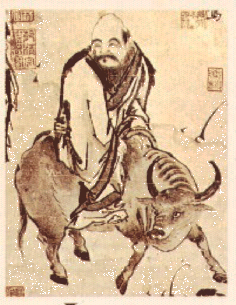
CHINA
Silkroad Institute
Chinese History, Thought & Literature
The Classics
Modern Thought

Confucius (Kong Zi), 551 – 479 BC
The Analects of Confucius

The King: “My good man, ... I presume that you have something with which I can profit my kingdom?”
Mencius: “Why must you speak of profit? What I have for you is humaneness and fairness, and that's all. If you always say ‘how can I profit my kingdom?’ your top officers will ask, ‘how can we profit our clans?’ The elites and the common people will ask: ‘How can we profit ourselves?’ Superiors and inferiors will struggle against each other for profit, and the country will be in chaos.”
Tao De Qing
"Do the difficult things while they are easy and do the great things while they are small. A journey of a thousand miles must begin with a single step."
"Kindness in words creates confidence. Kindness in thinking creates profoundness. Kindness in giving creates love."

Watson, Burton, trans. (1961). Records of the Grand Historian of China. New York: Columbia Univ. Press.
Second edition, 1993.
-
Qin dynasty, Volume 1, ISBN 978-0-231-08169-6.
-
Qin dynasty, Volume 3, ISBN 978-0-231-08168-9.
-
Han dynasty, Volume 1, ISBN 978-0-231-08165-8.

From Zhu Xi's "Treatise on humanity"
"If one could but truly practice love and maintain it, one would possess the well-spring of all virtues and the root of all good deeds."
On Zhu Xi's Theory of Mind and Methods of Self-Cultivation
Zhu Xi (Stanford Encyclopedia of Philosophy)
When feudal lords love one another there will be no more war; when heads of houses love one another there will be no more mutual usurpation; when individuals love one another there will be no more mutual injury. When ruler and ruled love each other they will be gracious and loyal; when father and son love each other they will be affectionate and filial; when elder and younger brothers love each other they will be harmonious. When all the people in the world love one another, then the strong will not overpower the weak, the many will not oppress the few, the wealthy will not mock the poor, the honored will not disdain the humble, and the cunning will not deceive the simple. And it is all due to universal love that calamities, strife, complaints, and hatred are prevented from arising.
http://www.humanistictexts.org/motzu.htm#Universal Love
Hon. Pung Kwang Yu
First Secretary of the Chinese Legation, Washington, D.C. USA
Confucianism
"On this account humanity stands at the head of the five faculties, or the innate qualities of the soul, namely, humanity, rectitude, propriety, understanding and truthfulness. Humanity must have the social relations for its sphere of action. Love must begin at home."
Read the full transcript of the speech at the 1893 Parliament of the World's Religions
Liang, as a historian and a journalist, believed that both careers must have the same purpose and "moral commitment," as he proclaimed, "by examining the past and revealing the future, I will show the path of progress to the people of the nation." Thus, he founded his first newspaper, called the Qing Yi Bao (清議報), named after a student movement of the Han dynasty.
from wikipedia

"The sufferings associated with society are corporal punishment and imprisonment, taxation, military conscription, social stratification, oppressive political institutions, the existence of the state and the existence of the family.
The human feelings which cause suffering are stupidity, hatred, fatigue, lust, attachment to things and desire.
The things that cause suffering because of the esteem in which they are held are wealth, eminent position, longevity, being a ruler and being a spiritual leader."
Literature
Written by Tang XianZu in the Ming period and first performed in 1598 at the pavilion of Prince Teng, the play is a rich display of human emotions and sensitivity and is often hailed as a high point in Chinese literature. Its full perfromance can last over 22 hours.

Cao XueQin (1715 or 1724 – 1763 or 1764)
Also called The Story of the Stone, the novel was written by Cao Xueqin during the Qing period. The work is considered a masterpiece of Chinese literature and acknowledged to be the pinnacle of Chinese fiction.




